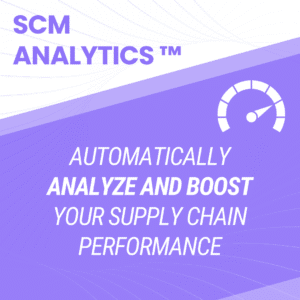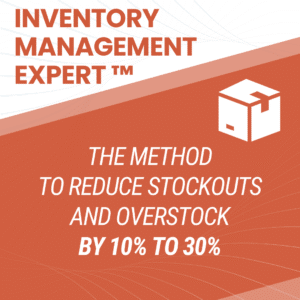We hosted a conference in Paris with Nicolas Vandeput about the future trends of our supply chain roles.
Here are 30 takeaways for Supply Chain Experts, Leaders, Consultants, and Software editors.

The Future of Demand Planning Roles
- Machines won’t replace us entirely, but they will handle more of our repetitive tasks.
- Short-term supply planning will become automated (like Amazon’s approach today).
- Companies will need 30-40% fewer demand planners.
- Machine models will drive forecasts, and our role will be to provide the most accurate and aligned data.
- Less time will be spent on spreadsheets and more time on facilitating cross-departmental cooperation.
- Demand planners will evolve into facilitators, S&OP leaders, and project managers within their units.
- Demand planning roles will shift towards centralized, end-to-end functions.
The Future of Management Roles
- Expect fewer management layers with reduced micromanagement.
- Teams will be smaller, more skilled, and increasingly automated.
- Managers will focus more on coaching hard and soft skills within their teams.
The Future of Consulting Jobs
- Freelancing is growing: 10% of the French workforce and 48% in the U.S. are now freelancers.
- A major opportunity exists for consultants to drive transformation, education, and new system implementations.
- Demand will rise for part-time Supply Chain Managers, Project Managers, and Experts for small-to-medium businesses.
- Consultants might have more stable income streams.
Emerging Supply Chain Roles
- Automation Experts with a supply chain background.
- S&OP Leaders and Collaboration Facilitators.
- Experts in Sustainable and Fair Trade Supply Chains.
- Risk Experts in Supply Chain.
- Part-time/Fractional SCM roles for smaller companies.
The Future of ERP, Software, and Excel
- Legacy ERP systems are the primary barrier to transformation.
- Cloud giants like Microsoft and Amazon will likely create agile ERPs with low/no-code interfaces.
- These tech leaders will likely acquire or partner with supply chain software specialists (Forecast, MRP, S&OP, TMS, WMS).
- Expect improvements in user interface, automation, and exception-based management (hopefully).
- Excel will remain the leading data and visualization tool for the next decade, especially with Power BI.
- A new ecosystem of Python programs connected to Excel may emerge.
The Future of Supply Chain Skills
- The future can’t be predicted, and it’s crucial to adapt.
- Less than 10% of attendees envision doing the same job in 10 years.
- Continuous learning, driven by personal motivation, is the top skill to cultivate.
- As systems evolve, focus on building both hard and soft skills deeply.
- Real project experience remains the best learning method.
Embrace the future of Supply Chain!





